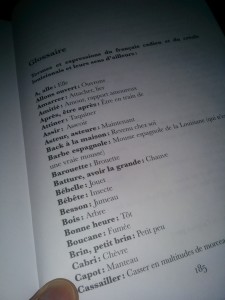I wrote about Feufollet’s new album Two Universes recently, essentially just to say that their switch from being a band that sings strictly in French to one that sings mostly in English is unique. It isn’t unheard of for musicians to begin using different languages, particularly if the change is to English, but Feufollet’s history and the niche they’ve carved out for themselves make this feel more pronounced.
The implications for this linguistic decision may also spread beyond Feufollet’s own personal sound and image. Arguably the most popular band in Cajun music at the moment, they’re quite possibly in a position to redefine what Cajun music is. Much like zydeco, French could become an occasional occurrence instead of a defining feature if others decide to follow their lead. One could even see this simply as strong support for the more regular tendency of a few other well-known Cajun music acts, such as The Pine Leaf Boys or The Red Stick Ramblers, to sprinkle English language songs throughout their albums.
I didn’t mention this tendency in my last post as both The Pine Leaf Boys and The Red Stick Ramblers generally use English in songs that aren’t of Cajun origin. The former can be heard singing Jerry Lee Lewis tunes in English during concerts but they never translate classic Belton Richard numbers, while the latter seems more at liberty to use English when playing western swing songs. In fact, western swing has been sung in both English and French in Louisiana since the 1940s by people like Harry Choates, to the point where the term Cajun swing is sometimes used. It’s almost as if the less strictly Cajun the other musical aspects of a song are, the more freedom a band has to abandon French, which may partially explain why Feufollet is moving in the same direction as their sound becomes less and less centered on tradition.
We speak English primarily, as our first language, so to write songs in English is not that crazy. But a lot of the way we’ve built our careers was attached to the French cultural preservation side of the music, so we’ll see if people get upset about our singing in English. We’ve done the cultural preservation thing for a very really long time, and right now we just want to be songwriters and musicians and make art first and foremost. –Chris Stafford of Feufollet speaking about singing in English in an interview in Oxford American
It is also possible that the members of Feufollet are coming to the conclusion that French is not a necessary component of Cajun music, or perhaps of even being Cajun, or perhaps they simply no longer view their music as Cajun music. It is interesting to note that Stafford would still describe the action of singing in French as preservation after doing it for so long, with at least two members of the band having grown up in French immersion schooling. Why isn’t this their primary language? Why hasn’t it become a normal aspect of their lives? Are songwriting and language preservation mutually exclusive activities? And what does this say for the future of French in Louisiana when even people who went through immersion schooling and use French professionally view using the language simply as preservation?
The lyrics of the title track Two Universes, quoted partially in the title of this post, may be evidence of the idea that Stafford & Co. are re-evaluating what it means to be a Cajun from Louisiana. At one point, Louisianians could speak of the state almost as its own country, with those from other places simply being referred to as “les Américains,” but these two universes certainly have collided, and maybe that’s just how it should be. For those of us still hoping to see French regain strength in Louisiana, however, this sentiment is particularly sobering.





Recent Comments